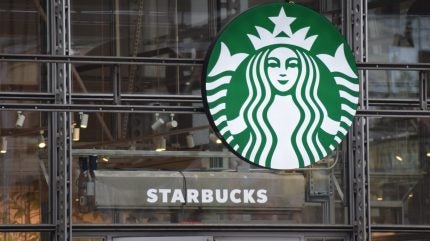
Starbucks has announced the launch of Green Dot Assist, a generative AI-powered virtual assistant designed to support baristas in real-time.
The solution allows partners to ask questions on in-store iPads verbally or via the keyboard and obtain conversational and instant replies, streamlining access to information needed during work.

Discover B2B Marketing That Performs
Combine business intelligence and editorial excellence to reach engaged professionals across 36 leading media platforms.
Green Dot Assist offers guidance on drink ingredients, equipment troubleshooting and staffing issues.
Starbucks is piloting the AI assistant in 35 coffeehouses, with more to follow.
Its launch is a step forward in the chain’s focus on decreasing friction, streamlining operations and providing time for partners to prepare beverages and connect with clients.
The coffee giant showcased the technology to more than 14,000 North American store managers at its Leadership Experience in Las Vegas.

US Tariffs are shifting - will you react or anticipate?
Don’t let policy changes catch you off guard. Stay proactive with real-time data and expert analysis.
By GlobalDataA broad launch is planned across Canada and the US by the chain’s fiscal year 2026.
Starbucks chief technology officer Deb Hall Lefevre was quoted by CNBC: “It’s just another example of how innovation technology is coming into service of our partners and making sure that we’re doing all we can to simplify the operations, make their jobs just a little bit easier, maybe a little bit more fun, so that they can do what they do best.”
In addition to Green Dot Assist, Starbucks is previewing its next-generation point-of-sale (POS) system, which aims to improve order accuracy, uptime [the time in which machinery is in operation] and partner workflow.
The chain is testing pilot menu innovations via the Starting Five programme, in which select locations in the US trial new products.
The introduction of the AI assistant follows a recent leadership reshuffle at Starbucks, with North America chief coffeehouse officer Mike Grams promoted to chief operating officer (COO).
The chain has also unveiled a strategic price decrease for its tea-based beverages in its second-largest market, China.





